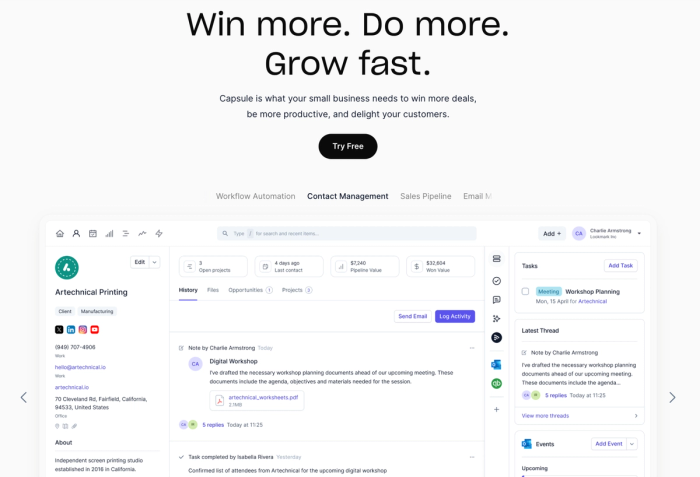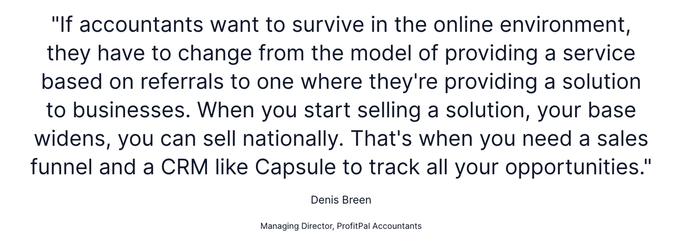When people imagine AI in accounting, they often envision spreadsheets filling out themselves, tax returns being delivered with a click, and accountants nervously polishing their résumés. But the reality, at least according to those in the trenches, is much more interesting. We asked seven accounting and bookkeeping leaders what’s changing, what’s hype, and what’s here to stay.
Expert comments: will AI replace accountants?

AI handles the basics – humans own the gray areas
“Some aspects of accounting will be replaced by AI. Some already have been, and for some, it will take longer,” says Erin Walls, founder & director of WallsMan Creative. Anything that’s basic compliance, driven by clear rules and checklists, is already AI territory.
But what about all those messy, nuanced scenarios accountants know so well? That’s where Erin sees the limits. “AI struggles with the gray areas. Tax law and regulations are full of examples that require interpretation and judgment,” she explains. The magic, she says, happens when accountants bring their experience and client history into play – spotting the angle that an AI might miss.
AI, Erin points out, is only as good as the questions it gets. If someone unfamiliar with the tax environment asks about a “gray area,” they might skip over key details that would change the advice entirely. And while AI can crank out emails, checklists, and data entry in seconds, real value lies in the conversations behind the numbers.
“People still prefer real-life connection over AI,” Erin adds, though she notes this will shift as digital-native generations move up. Still, she sees a future with fewer routine tasks and more space for accountants to offer opinion, strategic support, and business advice—especially when clients face choices with no easy answer.
Strategy still requires a human brain
Courtney Epps, owner of OTB Tax and a tax strategist with nearly two decades of experience, doesn’t mince words:
“AI absolutely won’t replace accounting – it’s making the human element more valuable than ever.”
Her take? AI is great for data entry and calculations. But as Courtney puts it, “My clients need someone who understands the strategy behind the numbers.” She tells the story of a skincare business owner whose old accountant missed out on critical deductions for three years running. “AI would have processed those same numbers the same wrong way three times over.”
For Courtney, the value isn’t in just filling out forms. “The real money is in proactive tax planning, not reactive preparation.” When she sits down for tax strategy sessions, she’s looking at business structures, timing, and long-term goals – something no AI can automate, because every client is different. One client saved $47,000 by switching their entity type after Courtney analyzed their specific operations.
She’s bullish on tech (“Clients trust me more because I use technology to eliminate human error”) – but only as a tool to free up time for real advisory work. “The accountants getting replaced are the ones just pushing papers through software instead of adding strategic value.”
The advisor role: from bookkeeper to business guide
Automation isn’t coming; it’s already here. For Taryn Pumphrey and her team at Ledger Lift, AI tools now handle repetitive tasks like data entry, transaction categorization, and compliance workflows. But the real shift? It’s what this automation makes possible.
“These tools save time, letting us focus on analyzing financials and advising clients on growth strategies,” Taryn says. And clients appreciate the difference. Even when a client’s sales tax calculations are fully automated, business owners still want someone they can trust to flag errors, explain rules, or simply listen when the numbers get overwhelming.
“Business owners don’t just want software – they want a partner who gets their stress and delivers clarity,” Taryn says. AI can forecast cash flow, but it’s still the human advisor who helps a retailer sleep better at night with a practical, hands-on plan.
Looking ahead, she predicts the accountant’s role will only become more strategic. “When you’re drowning in receipts or facing a tax deadline, you need someone to translate numbers into actionable plans. That’s where we step in, using AI as a tool, not a replacement.”

Clients want AI speed – but with human oversight
Gregory Rozdeba, CEO of Dundas Wealth, sees the hybrid future up close: “Clients are increasingly comfortable with AI handling routine calculations and data entry, but they still want human oversight for tax planning and compliance decisions.”
In his experience, while AI tools can automate bookkeeping and flag potential issues, clients look to accountants for context and perspective. “Our role is shifting toward providing financial guidance that accounts for each client’s unique circumstances. Strategic advice—grounded in real-world context—remains essential, even as AI handles more of the basics.”
AI will replace routine work, not the accountants who embrace it
Gary Jain, CEO of Ledger Labs, offers another perspective here: “AI won't replace accountants—but it will replace accountants who don't embrace AI. The future belongs to strategic thinkers who can combine technology with insight.”
In Gary’s world, AI already handles much of the routine: transaction categorization, invoice matching, expense tracking, anomaly detection, and even basic financial reporting. It flags compliance issues, streamlines month-end closes, and frees up humans for higher-value work.
But when it comes to interpreting results and making strategic decisions, his clients still want a human layer in the mix. “Trust in AI is growing,” he admits, “but there's still a strong desire for accountability and personalized insights that only human professionals can provide.”
Looking ahead, Gary predicts a shift away from manual data entry and reconciliation. The accountants who thrive will be those who sharpen their communication skills, business judgment, and ethical decision-making. “Advisory services, analysis, and strategy – that’s where we’ll deliver value as AI takes care of the repetitive tasks.”
Trust and relationships still matter most
Liza Garcia runs her CPA firm – Accuracy CPA, PLLC – with a clear focus on personal service: “We currently don’t use AI to complete our core accounting or tax work. That said, I may occasionally use it as a research tool to quickly gather information.”
Why? Trust and relationships. “Most of our clients prefer human oversight, especially when it comes to sensitive financial data. There’s a level of confidence and personal connection that comes from working directly with a professional who understands their unique situation.”
She expects more routine, day-to-day tasks to become automated over the next decade. “But when it comes to complex tax portfolios and strategic planning, human expertise is essential.” As Liza puts it, “AI can support that work, but it can’t replace the depth of judgment and accountability we bring to the table.”
Small firms thrive by combining AI with the personal touch
For Debra Hildebrand, owner of BARC Business, the future is all about leveraging AI to enhance what makes small firms unique. “AI will reshape the accounting industry, but it won’t eliminate the need for accountants. Instead, it will redefine roles and create new opportunities.”
She sees a future where routine jobs – accounts receivable, accounts payable – are increasingly automated, but the demand for strategic, personalized roles will only grow. “Small firms like ours can compete by offering personalized, AI-enhanced services tailored to niche industries. If we focus on local, small businesses, they will value our localized expertise.”
Debra expects her role to evolve: “I’ll be expected to bridge technical and business domains as the demand for AI technology increases. Expanding our offerings to include financial analytics consulting could attract tech-savvy clients.”
According to Debra, accountants will move from number-crunchers to tech-savvy advisors, thriving by focusing on niche markets and personalized service.
How to future-proof your accounting career: a modern checklist
The rise of AI in accounting is real – and if you’ve read this far, you know the consensus: it’s not about fighting off technology but using it to get better at what only humans can do.

Here’s how you can take experts' hard-won advice and actually future-proof your own accounting work – no matter where you are in your career.
1. Audit your tech stack – then go deeper
If you want to stay ahead in the future of accounting, start with a clear-eyed look at your technology.
Artificial intelligence isn’t here to replace human accountants, but it’s already reshaping how we approach everything from processing invoices to managing financial transactions.
- Inventory the AI tools your firm already uses (for invoice processing, financial statements, big data analysis, or fraud detection). Which accounting tasks are fully automated, which are partly, and which still demand the human touch?
- Test the limits: Run a “blind audit” – see how AI systems automate routine tasks or handle complex financial data (like unusual transactions or nonstandard deductions). Where does it stumble? Take note: this is your territory for value-add.
- Get hands-on with new tech: Demo a generative AI tool or a platform offering real time financial insights, even if it feels unfamiliar.
2. Double down on human strengths
Often, what sets great accounting professionals apart is human judgment and genuine client relationships. When numbers get messy, clients turn to you for clarity, empathy, and personal interaction.
- Deliberately schedule time for “human-only” client touchpoints. Try a post-tax-season debrief or a call where you explain financial statements in non-jargon terms.
- Sharpen your soft skills: Take a course on emotional intelligence, natural language processing (from the human perspective), or critical thinking.
- Write a list of your “most human” wins: Was there a time your professional judgment or human intuition saved a client from a costly mistake? Use these stories in client conversations to build trust.
3. Expand your advisory and strategic muscles
When artificial intelligence takes over repetitive number crunching, higher value tasks like advisory work become the mark of a successful accountant. Building trust and helping clients approach change calls for much more than technical know-how.
- Offer a new service that goes beyond compliance. For example, host a workshop on strategic decision making or create a “scenario planning” session using real client historical data and AI-powered forecasts.
- Lead an internal case study: Show how you turned big data into actionable insight – such as detecting fraud, identifying cost savings, or helping a client make informed decisions.
- Act as a translator: Explain to clients why AI flagged (or missed) certain data points, and what those mean for their unique business processes.
4. Carve out a niche or become the “go-to” for a certain accounting practice
You might find the most rewarding opportunities by focusing on a specialty where your insight can’t be replicated. A nuanced understanding of data quality and industry-specific needs makes you indispensable in a sea of generalists.
- Identify a niche with sticky, complex needs: e.g., SaaS accounting, multi-state sales tax, or non-profit grants.
- Subscribe to sector newsletters, attend webinars, or join forums. Engage where your clients hang out – not just where accountants work.
- Document your wins with real-world mini case studies: Show your nuanced understanding of industry-specific issues, not just the ability to process large volumes of transactions.
5. Make ethics and data privacy your competitive advantage
Often, the difference between just automation and real trust comes down to ethical choices and safeguarding sensitive data. Clients want to know their information is safe, and accounting professionals who champion data privacy build stronger relationships over time.
- Regularly review your firm’s data privacy practices and AI adoption policies. Do they protect client confidentiality with both tech and human checks?
- Be transparent with clients: Create a one-pager outlining what’s automated by AI systems and where human accountants intervene.
- Stay curious: Attend an industry talk or read up on the latest around ethical considerations in AI and the accounting profession. Clients notice (and appreciate) when you proactively raise these topics.
6. Build a “future skills” development plan
The best way to thrive as accounting evolves is to stay curious and commit to continuous growth. Automation will always change, but accountants who explore new technology while strengthening relationship building are always in demand.
- Commit to learning about the next wave: Machine learning, generative AI, and real time insights are evolving fast. Block an hour a month for self-learning.
- Shadow a colleague or mentor who’s already comfortable with the latest accounting ai tools—or, if you’re that person, teach others.
- Keep a “future skills” log: Track new AI features, changes in accounting roles, or unique client requests that have emerged thanks to technology.
7. Stay visible and connected
Where you spend your time and who you connect with can define your trajectory in accounting. Being active in your professional community helps you spot trends and turn relationship-building into your competitive edge.
- Present at local business events or write blog posts on AI in accounting. This positions you as a forward-thinker and builds relationship capital.
- Participate in professional associations or peer groups discussing big four accounting firms’ AI use cases, cost savings, and fraud detection advancements.
- Regularly ask clients for feedback about their experiences with both AI-powered and human-delivered services. This helps you spot trends in what real businesses want.
8. Reflect often: Are you adding uniquely human value?
The biggest risk for any accountant is letting automation dull their personal impact. Regular reflection ensures your work is meaningful, as it keeps your human judgment, creative thinking, and client relationships at the heart of your practice.
- End each quarter with a personal review: Which of your recent accounting tasks could AI have done? Which required human interaction, ethical nuance, or creative solutions?
- Ask yourself: If a client could only choose between AI or me for this project, would they notice the difference? Why? Use this insight to guide your development for the next quarter.
How Capsule CRM solves the biggest headaches for accountants
Every accountant knows the feeling: client notes in hundreds of emails, deadlines sneaking up, and data buried in forgotten apps or attachments.
Capsule CRM is designed for accounting professionals who are tired of chasing paperwork and want more time for serving clients – and growing their business.

Capsule tackles the challenges that slow accountants down:
- Messy client records? Capsule centralizes everything—notes, emails, tasks, and even personal details—so you never scramble for information at the last minute
- Missed delivery dates and forgotten follow-ups? Automated reminders and simple task lists make it easy to keep every engagement, document, attachment, and deadline on track
- Endless manual data entry? Integrations with Xero, QuickBooks Online, and other accounting software mean you stop copying and pasting between systems
- Confidentiality worries? Set granular permissions for your team to keep sensitive data private – while making sure the right people always have access.
- On-the-go blind spots? Capsule’s mobile app lets you manage clients, update tasks, and check key details from anywhere – no more waiting until you’re back at your desk.

Capsule frees you from admin and lets you focus on higher-value work like advising clients and building relationships. That’s why thousands of accountants, bookkeepers, and firms trust Capsule to help them work smarter, not harder.
Want to see how much smoother client management can be?
So, will accounting be replaced by AI?
Across the board, the answer is a clear no. AI is fast becoming an invisible partner for accountants and bookkeepers, handling the repetitive and the routine. But the work that really matters – the kind that keeps businesses growing and tax bills in check – still belongs to humans.
Accounting isn’t going anywhere – but the job description is getting an upgrade.
The next decade won’t be about replacing accountants with algorithms. The future of accounting will belong to professionals who mix digital savvy with genuine relationship-building – and know when to let the machines work, and when to pick up the phone.
As AI gets smarter, the best accountants won’t compete with it. They’ll put it to work – so they can do what they do best: help businesses grow, protect what matters, and make sense of a complicated world.
FAQ
Will AI replace an accountant?
Not for the work that matters! AI can pull numbers, flag errors, or reconcile bank statements in seconds, but it can’t sit down with a business owner who’s facing an audit or map out a creative tax strategy for a growing company. Accountants are still needed for gray-area questions, judgment calls, and the personal side of client service.
Is AI a threat to accountants?
For accountants who only handle manual data entry or churn out standard reports, yes – those tasks are disappearing fast. But if you’re already helping clients plan or make sense of new regulations, AI is your leverage. Many firms are hiring because they’re automating – they need professionals who can translate big data into decisions, not just process it.
Will AI replace accountants in 2025?
No. AI will do more of the “grunt work”, such as invoice matching or expense categorization. But clients will still want a trusted advisor to help with scenario planning, explain the latest tax law, or untangle a messy set of books. AI might handle the first draft; the accountant signs off on what matters.
Can AI replace cost accountants?
AI makes it easier to spot unusual patterns or benchmark spending – but only a cost accountant can connect those numbers to real-world context: “Should we switch suppliers?” “Is this variance a fluke or a red flag?” Cost accountants who pair analysis with business insight are even more valuable as automation grows.
Will accountants become obsolete?
No, but the job is evolving. Accountants who embrace new tech and focus on relationship-building, ethics, and explaining complex scenarios will thrive. Those who stick to routine, rules-based work may see fewer opportunities – but the profession itself isn’t going anywhere.




